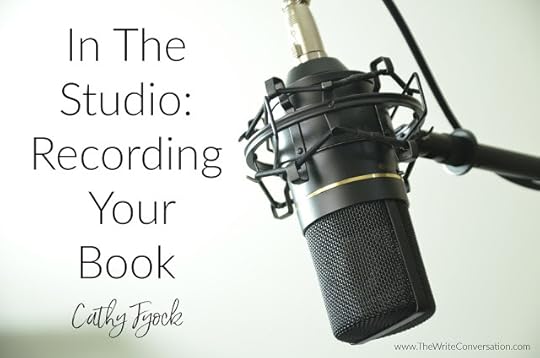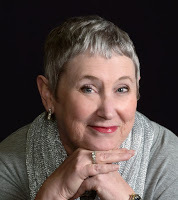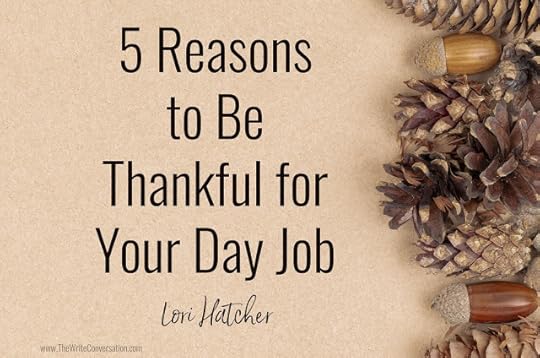Edie Melson's Blog, page 180
November 30, 2020
Let’s Start at the Very Beginning (A Very Good Place to Start)

by PeggySue Wells @PeggySueWells
As you begin writing your story, here is how to set up or format your manuscript.Professionals do not have time to waste, and if your work is constantly an issue of translation into something the person on the receiving end can read, people will be too busy to work with you. Additionally, if you won’t work within common parameters, this is a sign that you will be out of step in other areas as well. This is a foreshadowing of frustration for all parties involved.Write in 12 point Times Roman (Courier if writing a screenplay)One inch margins all aroundTitle in header on left sideAuthor’s name in ten point in header on right sidePage numbers in ten point centered in footerDouble space text that will be editedOne space after periodsPunctuation goes inside quote marks Before you send your manuscript to a publisher, check their writer’s guidelines and give them what they outline. Does the publication prefer says to said?Are numbers one through ten spelled out, while 11 and beyond written numerically?Are all numbers, no matter how large, spelled out? Is one Bible translation preferred?How are Scripture addresses formatted? Are books of the Bible abbreviated? Spelled out? Is Scripture in italics? Scripture separated from reference verse by comma or parenthesis?Are states abbreviated or spelled out?Are measurements abbreviated or spelled out?Is he capitalized when referring to God or Jesus?Resist the impulse to write your romance in flowery script, or your comedy in comic sans. If a different font helps you write the piece, then knock yourself out, but change it to Times Roman before submitting. Or risk being the example of what not to do when the editor teaches at a conference.
TWEETABLELet’s Start at the Very Beginning (A Very Good Place to Start) - @PeggySueWells on @EdieMelson (Click to Tweet)
 Tropical island votary and history buff, PeggySue Wells parasails, skydives, snorkels, scuba dives, and has taken (but not passed) pilot training. Writing from the 100-Acre wood in Indiana, Wells is the bestselling author of twenty-eight books including The Slave Across the Street, Slavery in the Land of the Free, Bonding With Your Child Through Boundaries, Homeless for the Holidays, and Chasing Sunrise. Optimistic dream-driver, PeggySue is named for the Buddy Holly song with the great drumbeat. At school author visits, she teaches students the secrets to writing, and speaks at events and conferences. Connect with her at www.PeggySueWells.com, on Facebook at PeggySue Wells, and Twitter @PeggySueWells.
Tropical island votary and history buff, PeggySue Wells parasails, skydives, snorkels, scuba dives, and has taken (but not passed) pilot training. Writing from the 100-Acre wood in Indiana, Wells is the bestselling author of twenty-eight books including The Slave Across the Street, Slavery in the Land of the Free, Bonding With Your Child Through Boundaries, Homeless for the Holidays, and Chasing Sunrise. Optimistic dream-driver, PeggySue is named for the Buddy Holly song with the great drumbeat. At school author visits, she teaches students the secrets to writing, and speaks at events and conferences. Connect with her at www.PeggySueWells.com, on Facebook at PeggySue Wells, and Twitter @PeggySueWells.
Gift-Giving Basics for the Non-Writing Spouse

Gift-Giving Basics for the Non-Writing Spouse
by Kirk Melson
Because it's Christmas Eve, I thought I'd share one of my challenges as the spouse of a writer.I don’t know about the rest of you, but I tend to be a little on the dense side when it comes to buying presents. I have great intentions, but I could never remember what my wife wanted when it came time to buy her a gift. Think I’m lying? I blogged about one of my most spectacular boo-boos here in My Life…In Print! All kidding aside, I love giving my wife the things she loves. What man doesn’t? And I have to admit that her choice of career has made life much simpler in that department—just don’t tell her I said that!
Since I’m talking to other writing spouses, I’ll let you in on the list I’ve developed.
Gifts to Give My Writing SpouseFirst, I’ve discovered that like all writers, the list of books she needs (wants) is literally pages long. I can never go wrong with a gift card to her favorite bookstore or website.Next, there are magazine subscriptions for writing magazines—online or in print. And I’ve recently found out there are even subscriptions available to books. She’s always got to have a current copy of the CMOS (for those out there who don’t know, that’s the Chicago Manual of Style and is something book writers need). Anyway come to find out, this book is on its millionth (or something) edition and is constantly being updated. Now instead of buying her book after book after book, I can get her a subscription to the Chicago Manual of Style. Who knew? Other books you can do that with are The Christian Writer' s Market Guide , The Writer’s Market Guide , and the AP Style Book . And speaking of book after book after book, all writers love e-readers. I know your special writer probably started off talking about how he or she loved the feel of real books, etc. But trust me when I say, “ALL WRITERS LOVE E-READERS.”Then there are those shiny little baubles we all love to give our wives. No not diamonds, I’m talking about all the newest tech gadgets, like iPads, or iPhones, or whatever the coolest gizmo of the month is. I will say they do have something in common with diamonds—they’re mighty small for the price tags they can carry!Finally, beyond all the gadgets and gizmos, there are the writing retreats, conferences, and classes. These events are great for you both, and here’s why. She gets to spend uninterrupted time with others of her kind (writers). This special breed of people loves to get together and jabber at each other in a foreign language. They can go on and on about plot and character, noun and verb, past perfect and future tenses. Not certain about the foreign language part? Just attend one of these events, I have, and I didn’t understand half what was said. What’s in it for you? I’ve discovered that when she comes back home, she’s happy to converse with me about normal subjects…at least for a few days.
Now I’d like to get a few pointers from you. If you were going to add to my list, what would you suggest? After all, we writing spouses have to stick together!
TWEETABLEGift-giving Basics for the Non-Writing Spouse - Kirk Melson on @EdieMelson (Click to Tweet)
November 29, 2020
Tips to Get Your Social Media Ready for the Holidays

by Edie Melson @EdieMelson
December will be here tomorrow and with it, Christmas. It only takes a little advance planning to cut down on the marketing stress that can come during the holidays. Now is the time to get your social media ready for the holidays.Update ImagesThe first thing you want to look at your cover photo on the different platforms. Consider ways you could enhance it to give it a warm, holiday feel.
There are two sites I recommend to make cover images: Canva and PicMonkey. It’s an online photo editing site and even includes templates for sites like Facebook. Here’s a screencast I shared, Step-by-Step Instructions for Adding Text to Images.
Beyond changing the look of your platforms by changing your images, you’ll need to plan ahead for social media updates.
Plan UpdatesLet’s face it, the holidays are fun, but they’re also hectic. By planning out some holiday updates in advance can save your sanity and keep the momentum going. Here are some ideas for fun social media updates.Share your favorite holiday recipe and ask your friends/followers to share theirs. Ask your followers to give you tips on sanity savers during the holidays.Share a crazy holiday faux pas and ask others to share theirs.Share some of your favorite holiday reads.Ask for decorating ideas.Share a holiday tradition and ask for others to chime in.Ask about favorite holiday movies.Share your favorite Christmas carol and ask your friends to share theirs.I think you get the idea.
But by planning these out in advance, you can have a list ready to go and not have to spend valuable time creating them.
Plan Blog PostsYou can also plan some blog posts in advance. The holidays are a good time to plan a giveaway. You can also plan a holiday cookie recipe exchange and a holiday potluck recipe exchange for your blog.
Now it’s your turn, share some holiday conversation starters, and blog post ideas.
Don’t forget to join the conversation!Blessings,Edie
TWEETABLETips to Get Your Social Media Ready for the Holidays - @EdieMelson (Click to Tweet)
 Edie Melson is a woman of faith with ink-stained fingers observing life through the lens of her camera. No matter whether she’s talking to writers, entrepreneurs, or readers, her first advice is always “Find your voice, live your story.” As an author, blogger, and speaker she’s encouraged and challenged audiences across the country and around the world. Her numerous books reflect her passion to help others develop the strength of their God-given gifts and apply them to their lives.Connect with her on her website, through Facebook, Twitter and on Instagram.
Edie Melson is a woman of faith with ink-stained fingers observing life through the lens of her camera. No matter whether she’s talking to writers, entrepreneurs, or readers, her first advice is always “Find your voice, live your story.” As an author, blogger, and speaker she’s encouraged and challenged audiences across the country and around the world. Her numerous books reflect her passion to help others develop the strength of their God-given gifts and apply them to their lives.Connect with her on her website, through Facebook, Twitter and on Instagram.
November 28, 2020
A Tribute to My Daughter-in-Law

I have three sons and as they’ve married, we’ve also added three precious daughters to our family. Each girl is as special to us as if they’d been in our family for their entire lives.
This past week we lost one of our girls in a tragic accident.
Katie was our oldest son’s wife and they recently had their first child. Baby Van is only three months old.
It’s been the hardest week of our lives, but it’s been precious too as we’ve pulled together as a family. Our community has lavished love on us and buried us in an avalanche of food. We’ve cried, laughed and tried to figure out how we’re going to go forward with a huge hole in our lives.
Katie was our first daughter. She’s been in our lives for fourteen years. She began dating Jimmy when he graduated high school and entered the Marine Corps. She was a year behind Jimmy and spent her senior year coming to our house after school three or four days a week while he was deployed.
When she and Jimmy decided to move up the wedding date her mother was in Germany and she allowed me to go with her to pick out her wedding dress. Her caring heart and infectious laughter have added so much to our family.
We all miss her so much.
 She and one of our other daughters, Weslyn (Kirk’s wife), went through their pregnancies together. Katie delivered Van first, but Weslyn followed soon after with Rivers. The boys were born two weeks and two hours apart.
She and one of our other daughters, Weslyn (Kirk’s wife), went through their pregnancies together. Katie delivered Van first, but Weslyn followed soon after with Rivers. The boys were born two weeks and two hours apart.
And eight weeks later, we added our third daughter when John married Tiffany. Now it felt like our family was complete.
 Oh the plans we had with these new additions—from beach trips to family photo shoots.
Oh the plans we had with these new additions—from beach trips to family photo shoots.
Then the accident and the unthinkable happened. We’ve learned anew that nothing in life is certain and there are no guarantees. Nothing, except the faithfulness of God—even in the midst of the unthinkable.
Many of you have reached out to us and I can’t thank you enough for this outpouring of prayer and love. I’ve tried to thank you, but it’s just not possible. Death brings with it a myriad of details. There are so many things that need to be handled just when your brain is incapable of processing information.
But we’ve found that’s when God steps in—using friends and family to keep you going. There have been practical boots-on-the-ground help and there has been spiritual offensive help as prayer warriors place a dome of protections and peace over us.
Each of you have eased our burden by sharing it and we cannot thank you enough.
I do want to let you know about on way you can help our son and grandson. In the midst of this, Jimmy has started a GoFundMe for their son Van’s college education. If you’d like to donate, we’d be honored. And if you can share the GoFundMe, that would help as well.
Here’s the link to our GoFundMe for Van’s College Education.
And thank you for allowing me to take one day to share this tragedy we have in our family.
Blessings,
Edie MelsonTWEETABLESupport our GoFundMe for Katie's son Van as we raise money for his college education (Click to Tweet)
November 27, 2020
In The Studio: Recording Your Book

by Cathy Fyock @CathyFyock
These past months I’ve spent some time in the studios, recording the audio book for On Your Mark, and video-taping the video book for Blog2Book and The Speaker Author (stay tuned for more information on this exciting project I’m working on with National Speakers Association member Chuck Gallagher).
Here are my insights for those of you who are thinking about recording your own book.First, know that you don’t HAVE to be the one that records your voice. “Some voices, while excellent speaking voices, aren’t great for audio books,” states voice-over actor and NSA member Randye Kaye. “Some speakers have very theatrical voices that are just too much for the intimacy of an audio book,” she explains. Randye has voiced more than 100 books to date and enjoys working with Speaker Authors to become the voice of their books.
If, however, you know you want to be the voice talent, then I’d like to share some tips that I found very helpful in my time in the studio.
Work with a great producer who has experience with audio books. “ACX requires you meet certain standards, so it’s critical that your production team know what is necessary to be approved,” states producer Jeff Hutchins with Head First Media in Louisville, Kentucky. Jeff has not only helped me with On Your Mark, but is also producing the audio books for NSA Speaker Authors Justin Patton and Cara Silletto, in addition to his many book recordings for ACX and his experience as a voice-over actor for commercials, e-learning, and trade show video.
When booking studio time, keep the recording times under two to three hours, and don’t book back-to-back sessions. “The voice needs to be energized, so don’t try to get the entire project done in two or three straight days in the studio, if at all possible,” suggests Jeff.
Take frequent breaks. You want to maintain your energy and momentum, so be sure you are reading while your energy is high. Have your producer ask you to break if he notices a lag in your energy.
Keep your water bottle close by. Take in your water bottle and drink room temperature water frequently to keep your vocal cords hydrated. Randye adds, “Begin hydrating at least 24 hours before time in the studio. Your vocal cords are tissues that need plenty of water.”
In advance of the studio time, consider how you’ll treat boxed text, pull quotes, and other formatted material. For example, On Your Mark has several areas in which I share a personal idea, and where my co-author, Kevin Williamson, shares a tip. I decided to have a male voice record Kevin’s comments to give the book some variety and to highlight his contribution.
Remember, it’s a conversation, not a performance! As Randye stated earlier, you are not performing for a huge audience; rather, you are reading to one listener. Be sure your style reflects that nuance.
I’d love to hear about your successes in recording your books!
TWEETABLEIn The Studio: Recording Your Book - @CathyFyock on @EdieMelson (Click to Tweet)
 Cathy Fyock is The Business Book Strategist, and works with professionals and thought leaders who want to write a book as a business development strategy. Since starting her business as a book coach in 2014, she has helped more than 160 professionals become published authors. Her most recent book is The Speaker Author: Sell More Books and Book More Speeches. She can be reached at cathy@cathyfyock.com or 502-445-6539.
Cathy Fyock is The Business Book Strategist, and works with professionals and thought leaders who want to write a book as a business development strategy. Since starting her business as a book coach in 2014, she has helped more than 160 professionals become published authors. Her most recent book is The Speaker Author: Sell More Books and Book More Speeches. She can be reached at cathy@cathyfyock.com or 502-445-6539.
November 26, 2020
5 Reasons to Be Thankful for Your Day Job

by Lori Hatcher @LoriHatcher2
In the early days of writing, I envied full-time authors. If I didn’t have to divide my time between my day job and writing, think how much more I’d accomplish. And how wonderful to have the freedom to write for days when the muse struck. No more getting up early, staying up late, and writing a hundred words at a time during my lunch hour. I could put in an eight-hour writing day and reserve my evenings for friends and family.Now that I’ve entered my tenth year of writing while working part time as a dental hygienist (and full time as a pastor’s wife), I seldom envy my full-time writer colleagues. Instead, I embrace my divided work life.
During a recent prayer time, I listed five reasons I’m thankful for my day job.
1. My day job provides a steady source of real-life material.Although I always change the names and details before I insert one of my dental patients into my latest WIP, I never have to hunt for material. It comes to me every 45 minutes. As I listen to my patients’ joys, sorrows, and challenges, I witness a 4-D panorama of the world today. I can write with authenticity because my patients’ personalities and humor weave themselves into the fabric of my WIP.
2. My day job keeps me culturally relevant.In our practice, we care for patients from age 3 to 103. I get up close and personal with people in all stages, cultures, and lifestyles. As we talk, I learn current vernacular and trends, observe the latest fashions, and collect invaluable details about life. I know how lawyers dress and act. I watch young moms deal with reluctant children. I have a legitimate reason to ask college students about their routines and lifestyles. When I write dialogue, all I have to do is reflect on a workplace conversation, and I nail it every time.
3. My day job limits my writing time.Whaaat? Why would I feel thankful my day job cuts into my writing time? Because I know I can’t write on Wednesdays and Thursdays, I write more diligently on Mondays and Tuesdays. My limited writing time prompts me to guard my time like the precious gift it is. Working outside the home two days a week makes me less likely to say, “Sure, I can go thrift shopping with you tomorrow,” and more likely to say, “Could we go Saturday instead? Tomorrow’s my writing day.” I choose carefully how best to spend my limited hours.
4. My day job provides an open door for ministry and book sales.As I interact with my patients, I learn about their lives, and they learn about mine. Our conversation often includes matters of faith. Because they know I’m an author, they’ll ask me for updates on my latest book project. When a book finally launches, they feel as excited as I do. My kind boss’ permission to display and sell my books in the office gives me yet another opportunity to share my faith with my patients. Some have become my greatest fans, sharing my work with their friends and family and leaving 5-star reviews on Amazon.
5. My day job provides a steady income.Having a consistent outside source of income means I can be strategic about accepting the writing opportunities that come my way. Rather than doing everything because I need the income, I can select the projects that will best position me for success. When I’m on deadline with a book, I can focus on that. When I’m in between projects, I can say yes to freelance writing and editing projects that appeal to me and fit around my work schedule.
A 2018 Statista study revealed that while more than 45.8 thousand writers and authors work in the United States, only 21 percent of full-time published authors made one hundred percent of their income from books. This gives me great comfort. It tells me I’m not alone in my bi-polar employment life. Even those who write full time diversify.
Time, experience, and two (soon to be three) traditionally published books have proven to me that authors can be successful because of their day jobs, not despite them. And if you’re one of the few who can write full time but don’t feel like you’re accomplishing enough, perhaps you need to get a part-time job (smile).
Now it’s your turn. Do you have a day job, or do you write full time? What benefits have you discovered from your job that positively impact your writing life? Leave a comment below and share your thoughts.
TWEETABLE5 Reasons to Be Thankful for Your Day Job - @LoriHatcher2 on @EdieMelson (Click to Tweet)
 Lori Hatcher loves God even more than she loves chocolate—and that’s a lot. Since He rescued her at age 18, she’s been on a relentless journey to know and love Him more. Her deepest desire is for her reader friends to join her on the journey. As an author, blogger, and women’s ministry speaker, she writes for Our Daily Bread, Guideposts, Revive Our Hearts, and Crosswalk.com. She’s written three devotional books, including Refresh Your Faith, Uncommon Devotions from Every Book of the Bible, and Hungry for God…Starving for Time, Five-Minute Devotions for Busy Women. Connect with her at LoriHatcher.com or on Facebook, Twitter(@lorihatcher2) or Pinterest (Hungry for God).
Lori Hatcher loves God even more than she loves chocolate—and that’s a lot. Since He rescued her at age 18, she’s been on a relentless journey to know and love Him more. Her deepest desire is for her reader friends to join her on the journey. As an author, blogger, and women’s ministry speaker, she writes for Our Daily Bread, Guideposts, Revive Our Hearts, and Crosswalk.com. She’s written three devotional books, including Refresh Your Faith, Uncommon Devotions from Every Book of the Bible, and Hungry for God…Starving for Time, Five-Minute Devotions for Busy Women. Connect with her at LoriHatcher.com or on Facebook, Twitter(@lorihatcher2) or Pinterest (Hungry for God).
November 25, 2020
Happy Thanksgiving
November 24, 2020
Holiday Conflict in the Stories We Write

by DiAnn Mills @DiAnnMills
Adding a twist to a story’s setting gives it a psychological zip. Holidays are no exception. As your characters enter the season of Thanksgiving, Christmas, and New Year’s, place them in scenes where they are caught off guard—where they believe their mental, emotional, and physical world is safe until they are hit with conflict from unexpected places. What about a holiday is unpleasant for your character? What does the character appreciate about the holiday that hits him/ her blindside?No matter what genre, depth of story satisfies the reader. Here are a few examples of how you can weave the fall/winter seasons into your plot with obstacles that create problems for your characters.
Thanksgiving
Romance - Your hero invites the heroine to his parents farm for a traditional dinner, but he fails to inform his mother that the heroine is gluten-free and vegan. What he believes is the perfect setting for his parents to fall in love with the heroine ends up being a catastrophe when the menu includes all the items she can’t eat.
Historical - A family looks forward to enjoying a harvest festival when several members of the family become ill with smallpox.
Suspense - Your heroine joins up with a boyhood friend during the Thanksgiving holiday when a bad guy opens fire and wounds the boyfriend. The heroine chases the bad guy through the woods, but her foot snaps a fallen branch, the bad guy is alerted and gets away.
Speculative - Perhaps Thanksgiving isn’t celebrated in your story world, but feasts are always in style. While the characters in your story are enjoying a grand festival, they are attacked by an enemy.
Christmas
Romance - A hero plans to propose to the woman of his dreams on Christmas, but he finds her in the arms of another man and suspects the worst.
Historical - A father struggles with his health and lack of money to give his four children gifts for Christmas. When he fails, he learns the best gift he can give is his love.
Suspense - A female criminal celebrates the season with her family and friends, providing an opportunity for law enforcement to make an arrest. Only the criminal’s boyfriend happens to be one of the arresting officers.
Speculative - All celebrations are forbidden in a world ruled by those who seek to control their people through oppression and persecution. But one person defies the mandate to bring happiness to others.
New Year's
Romance – A man rushes to catch the last flight out of New York to reach his wife by January 1 to prevent her filling for divorce. The couple have been separated since the summer, and he wants to restore their marriage. A winter storm delays the flight for two days. He calls his wife, but another man answers.
Historical – A farmer has experienced a bad year with his crops, and his family has just enough food to last until January 1. On the 31st, he treks toward town to ask the pastor for help. A snowstorm hits, and he’s lost in a blizzard.
Suspense – A businesswoman made the mistake of borrowing from a loan shark to keep her business from closing. She’s missed her deadline twice. Now the amount with interest is due on December 31 or the loan shark will burn down her warehouse. She makes a substantial sale to cover the loan, but on December 30th, the purchaser backs out of the deal.
Speculative –Aliens invade a peaceful planet during a New Year celebration. Caught off-guard, the inhabitants are forced to give up all their children or the planet will be destroyed.
Consider your story. Is it set during an upcoming holiday? Instead of using a celebration to add a break to your character’s life, weave an unpredictable twist. Does snow and ice interfere with a deadline? Does last minute shopping for a special dinner cause an unexpected encounter with fate? Take the holiday challenge and deepen your story. You’ll be amazed at the results.
TWEETABLEHoliday Conflict in the Stories We Write - @DiAnnMills on @EdieMelson (Click to Tweet)
 DiAnn Mills is a bestselling author who believes her readers should expect an adventure. She creates action-packed, suspense-filled novels to thrill readers. Her titles have appeared on the CBA and ECPA bestseller lists; won two Christy Awards; and been finalists for the RITA, Daphne Du Maurier, Inspirational Readers’ Choice, and Carol award contests.
DiAnn Mills is a bestselling author who believes her readers should expect an adventure. She creates action-packed, suspense-filled novels to thrill readers. Her titles have appeared on the CBA and ECPA bestseller lists; won two Christy Awards; and been finalists for the RITA, Daphne Du Maurier, Inspirational Readers’ Choice, and Carol award contests. She is the director of the Blue Ridge Mountain Christian Writers Conference, Mountainside Marketing Retreat, and Mountainside Novelist Retreat with social media specialist Edie Melson. Connect here: DiAnnMills.com
November 23, 2020
Reasons I Might be Struggling as a Writer

by Edie Melson @EdieMelsonChoosing to be a writer can be a daunting prospect. It involves courage, creativity, and yes, commitment. When we’re unwilling to make that commitment, we can doom ourselves to failure before we’ve had a chance to succeed.
This post isn’t meant to beat anyone up, but rather to make us aware of some of the things that could be holding us back on our writing journey.2. I'm unwilling to spend time writing. This seems like a no-brainer, but you’d be surprised at how creative writers can be when it comes to thinking up reasons not to write. Beyond that, you’ll find writing groups and gathers populated with scores of people who want to be writers, but have reasons why they can’t right now. The truth is we all have reasons in our lives not to take the time to write. It all boils down to priorities. We make time for the things that are most important.
3. I'm unwilling to invest in learning how to write. Talent is great, but that alone won’t get any of us to the top, or even very far above the bottom. We have to learn how to apply the talent we’ve been given. That means reading books and blogs as well as attending classes and conferences.
4. I'm unwilling or defensive about being critiqued. I’m still not the best about enjoying a good critique, but I’ve learned how to accept it. I thank the person critiquing me, and even if I don’t agree, I look it over and try to take what I can from it. Especially with in-person critiques I’ve learned that being defensive and trying to explain or justify is counterproductive.
5. I'm unwilling to join a writers group. There are those in the industry who disagree with me, but not many. I’ve found that for me, and the hundreds of writers I’ve worked with, that we’re all stronger together. We need others to encourage us along the way. We also need the perspective of those who’ve experienced what we’re going through.
6. I'm refuse to spend time reading. Our business is that of writing. How can we have perspective on the industry if we refuse to read what’s being written? Books are a valuable way to learn and polish our own writing.
7. I'm unwilling to learn the business of writing. There’s more to writing than just putting words on paper. We need to learn the language of the publishing industry. We need to learn the etiquette of the publishing industry. We need to learn the marketing and social media side of the business, and how things work.
8. I'm unwilling to be patient. Writing is a craft. It’s not something learned overnight. We often come into this business with something we’ve written and expect it to be publishable. That’s just not reasonable. A concert pianist can’t expect to be performance-ready before his first lesson, and neither can a writer.
9. I'm unwilling to submit my work. Yes we want to write with excellence. We need to do the best we can right now, but not let perfectionism get in the way of submission. There are two truths in this industry we each need to embrace:No matter how hard we try, we’ll never be perfect.No matter how much we revise the piece we’re working on now, the next one will be better.10. I think everything I write is publishable. There are going to be some things we write that just don’t fit the market—any market. This doesn’t necessarily mean they’re bad. It could be the wrong time or place for such a piece. We need to know when to move on to the next thing.
11. I'm unwilling to accept advice. I don’t think we should accept every single piece of advice we receive. Likewise though, I don’t think we should ignore every single piece of advice we receive. When someone
12. I'm unwilling to stop looking at myself as the exception to the rule. There are certain ways that things are done or not done in the publishing industry. There are also exceptions to almost every single instance. But there’s a reason they’re called exceptions. It’s because those specific set of circumstances rarely happen that way. It’s fine to dream and hoped, but we also have to be diligent, disciplined and do our part to make our dreams come true.
13. I look at every other writer as my competition. There is plenty of work to be done. Especially as believers who write, God has room for each of us. We need to celebrate the successes of one another, share what we’re learning, and never gloat when things go well.
I’m sure this list could go on and on and on. I’m at the end for me, but I’d love to hear what you’d add. Be sure to leave your thoughts in comments section below.
Don’t forget to join the conversation!Blessings,Edie
TWEETABLEReasons I Might be Struggling as a Writer - @EdieMelson (Click to Tweet)
 Edie Melson is a woman of faith with ink-stained fingers observing life through the lens of her camera. No matter whether she’s talking to writers, entrepreneurs, or readers, her first advice is always “Find your voice, live your story.” As an author, blogger, and speaker she’s encouraged and challenged audiences across the country and around the world. Her numerous books reflect her passion to help others develop the strength of their God-given gifts and apply them to their lives.Connect with her on her website, through Facebook, Twitter and on Instagram.
Edie Melson is a woman of faith with ink-stained fingers observing life through the lens of her camera. No matter whether she’s talking to writers, entrepreneurs, or readers, her first advice is always “Find your voice, live your story.” As an author, blogger, and speaker she’s encouraged and challenged audiences across the country and around the world. Her numerous books reflect her passion to help others develop the strength of their God-given gifts and apply them to their lives.Connect with her on her website, through Facebook, Twitter and on Instagram.
November 22, 2020
What to do When a Writer Gets Stuck

by Ane Mulligan @AneMulligan
I read a post I'd written for TWC in February 2019 about letting go. I had the location. I had the story. But the setting had a strange effect on my writing. The tale turned into something I don’t write—dark fiction. I write uplifting stories. I write about friendships. And I write with humor-colored glasses. How did I go off track? Apparently, it was a combination of my knowledge of the characters’ backstory and the location. And I was stuck in a bog, unable to move forward. The story was kicking my derriere.
I finally came to the realization I wasn’t just on the wrong track; I was going in a direction my readers wouldn’t follow. Hold onto your hats, boys—I tossed out 33,506 words. One third of a novel was gone in one mighty stroke of the delete key.
Once I got past that hyperventilating event, the next thing I had to do was start over.
On Goose Island becomes On Sugar Hill.
I liked the original what-if of this story. So, I kept that, but I changed the setting. I moved it away from the low country, where superstition and drama flourish to Sugar Hill where superstition and drama flourish. Yes, it still contained some superstition and drama. But it wasn't dark but a little humorous.
Names are important.
I also changed the characters’ names. Names produce images and feelings. Only one original name remained, and that one I could change her personality without any problems.
She's what?
Next, I had to give up the dark secret to a secondary character’s affliction. I liked the affliction, so I kept it, deciding that it simply was—a fact. I never give a reason for it. After all, the story opens in 1929. That character, a quirky aunt, was born in 1885. They didn’t have the medical knowledge to know the cause of many disorders, nor the expertise to fix them.
Ready, set, go
I began to write. I discovered the changes I made were the right ones. The characters revealed their stories to me, and I found some new threads to weave through. Was it easy now? No. Nothing worth reading is written easily. It takes brainstorming, rewriting, rethinking. It takes sweat and tears. And if you kick a cabinet in frustration, it even takes a little blood.
A new problem
But now I have a research conundrum. My setting is Sugar Hill, Georgia. Sugar Hill was a militia district from the Civil War. It was not a town or city. It didn’t incorporate until 1939. All official town history begins then. There’s not a lot written about it prior to that. I had to go to another nearby town, Buford, GA, that includes some of the early Sugar Hill history. But most of my research has been talking to long-time residents.
I usually write fictional towns for that very reason. I can place a building where I want it, and no one can tell me it wasn’t there. This time, I can’t. In some cases, history isn’t clear about who owned a certain store at that time or what it was called. A book on Buford history has a long list of who bought the drug store when, but for some reason the years I’m looking for are missing.
After finding most of the people who were over the age of ten in 1929 and might remember the local history I need (like was there a general store within five miles) have passed away or are too ill to talk with me. And so, I’ve had to take literary license and mention it in my author’s note.
Finally, COVID-19 hit town and we were on self-imposed quarantines. I wrote this story in twelve weeks, no longer bogged down. It goes to show what happens when you have the right setting.
Sometimes you do what you gotta do.
In High Cotton, now availableOn Sugar Hill, releases June 1, 2021 By the Sweet Gum is almost completed
TWEETABLEWhat to do When a Writer Gets Stuck - @AneMulligan on @EdieMelson (Click to Tweet)
 Ane Mulligan has been a voracious reader ever since her mom instilled within her a love of reading at age three, escaping into worlds otherwise unknown. But when Ane saw PETER PAN on stage, she was struck with a fever from which she never recovered—stage fever. She submerged herself in drama through high school and college. One day, her two loves collided, and a bestselling, award-winning novelist emerged. She lives in Sugar Hill, GA, with her artist husband and a rascally Rottweiler. Find Ane on her website, Amazon Author page, Facebook, Twitter, Instagram, Pinterest and The Write Conversation.
Ane Mulligan has been a voracious reader ever since her mom instilled within her a love of reading at age three, escaping into worlds otherwise unknown. But when Ane saw PETER PAN on stage, she was struck with a fever from which she never recovered—stage fever. She submerged herself in drama through high school and college. One day, her two loves collided, and a bestselling, award-winning novelist emerged. She lives in Sugar Hill, GA, with her artist husband and a rascally Rottweiler. Find Ane on her website, Amazon Author page, Facebook, Twitter, Instagram, Pinterest and The Write Conversation.




